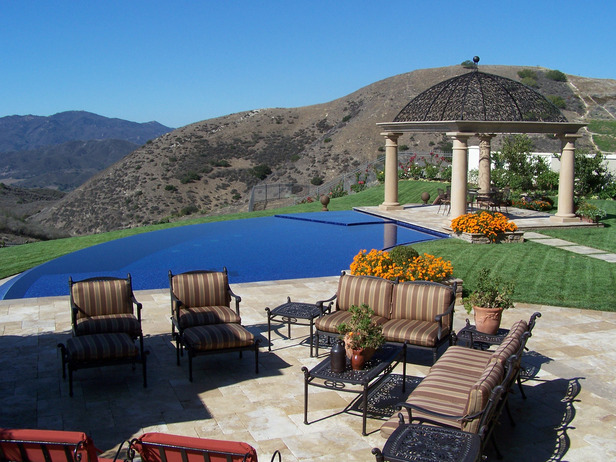What should you choose Travertine?
- The key differences between Travertine is the formation of the stone, the hardness and the appearance.
- Travertine is a Limestone but a more porous stone compared to the marble.
- The surfaces Travertine come in are unfilled, tumbled and brushed, honed and filled and sawn.
- Travertine is more of a natural looking stone, there are always more pattern variations to keep the pavers from looking too uniformed.
- The pavers can be purchased in an array of sizes making it a very versatile natural stone.
- All of these materials have different characteristics and in some cases are better used for some purposes than others.
- If you are wanting to bring natural elements into your home we recommended using Travertine.
- The advantage for using Travertine outside your home is that it absorbs water quickly, making it ideal for use around a pool area.
- Honed Travertine pavers or tiles once sealed are very easy to clean, just wipe down with a damp cloth or mop (flooring).
- If maintained properly Travertine can last forever. This does require you to care for your stone and seal it yearly.
- Sealing Travertine is important to prevent any stains or damage. The stone is very sensitive to acidic food or drinks also.
- Travertine Pavers typically have one of three finishes:
- Tumbled (textured and porous surface)
- Polished (smooth and shiny)
- All of our Travertine is directly imported from Turkey.
- Special orders are available depending on the quantity of the order.
- Travertine Pavers will not absorb the heat from the sun outdoors and will not burn your feet during the hot summer months.


